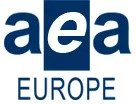Irenka Suto, Head of Assessment and Research, Cambridge Centre for Evaluation and Monitoring
What does educational success look like? It’s a huge question. What outcomes do we want for our young people when they complete their journeys through school and reach adulthood?
We’d all like school leavers to receive certification of their achievements. And we’d also like them progress to the next stage of their educational journey, whether that’s higher education, an apprenticeship, or employment. These are perhaps the two most obvious types of educational outcome.
Thinking further about this though, we’d also like school leavers to have high levels of mental wellbeing. This means feeling happy in themselves and excited about the future, and also feeling proud of their achievements – that they are fulfilling their potential. Self-actualisation is a core psychological need.
Life competencies, sometimes called 21st Century skills, are also important, aren’t they? This is a huge box of different skills which we need in order to get on well with others at home and in the workplace, and in society, to develop both professionally and personally as we go through adulthood.
And what about being a good citizen? What does that mean? Is it that we want our young people to have good moral, ethical, and social values? Do they have what’s needed to become good colleagues and good parents, and to contribute well to their communities? What about being a leader of the future?
Looking at the bigger picture like this is often called taking a holistic view of educational success. Although holistic can have ‘alternative’ or hippy connotations today (candles and rose petals spring to mind for some), it’s not a new concept. Longstanding European pedagogical philosophies such as Bildung in Germany and Scandinavia take a holistic view of education, for example. According to the OECD, nurturing all aspects of a student’s growth, and thinking about how to work towards all these outcomes in school, acknowledges the broader social, societal, and economic responsibilities of education.
A wonderful thing about a holistic view of educational success is that it can mean different things in different countries, and even in different schools around the world. Each school will emphasise slightly different outcomes for their learners since each is embedded within different local and national cultures and legal frameworks, serving a different community of students.
When it comes to assessment, there’s a common challenge for school leaders adopting a holistic approach to education, whatever the precise approach. It is in understanding what different types of assessment and evaluation do, and how they all fit together coherently within the school’s context. There are numerous assessments out there, created by government bodies, by schools themselves, and by external assessment organisations. At times it’s hard to see the bigger picture. Are there overlaps, creating undue assessment burden? What about the gaps in what’s assessed?
I wanted to help teachers to see what the main influences upon educational success are, and therefore, the broad areas that different types of assessment and evaluation relate to. To this end, I reviewed academic literature, persuaded colleagues to undertake some predictive validity analyses, and talked to colleagues from across my organization about their experiences with schools in many different countries. From there, I identified five main areas of insight that teachers can gain into their learners’ journeys (Suto, 2023). Collating assessment data in the five areas can help to answer different questions that teachers have.
| Area of insight | Questions that assessment data in this area can help answer | Examples of assessments and evaluations |
|---|---|---|
| Cognitive skills and capabilities, such as reasoning skills | How able are learners? What is their potential? |
Baseline assessments |
| Cross-curricular knowledge, skills and understanding, such as vocabulary, core mathematics concepts, and the language of educational instruction – needed for success across many school subjects | How easy will it be for learners to access the curricula? | Baseline assessments Tests of the language of educational instruction |
| Domain knowledge – taught in traditional school subjects | Are learners absorbing the curriculum and progressing well? | Progress tests during courses Summative tests at the end of courses. |
| Teaching and learning environment | Are learners in the best possible place to learn? Are unnecessary demands imposed upon them? |
School inspections Teaching evaluations Reviews of school facilities |
| Personal attributes | Are learners good at the processes of learning? Are they ready to learn? |
Assessments and evaluations of personal styles, life competencies, and mental wellbeing |
The five areas of insight influence educational success, but of course they also influence each other. There are many interactions. This is simply a pragmatic categorisation to help teachers to see the bigger picture and make informed decisions around assessments. There are alternative ways to slice the cake though.
Together with Gulbakhyt Sultanova and Assel Rakhimbekova from Kazakhstan, and Tim Oates and Stuart Shaw from the UK, I’m delighted to be on the steering group of AEA-Europe’s new Holistic Assessment Special Interest Group. We’re looking forward to exploring research in all areas of insight. Perhaps our ultimate question is that of how teachers can best combine and use different types of assessment and evaluation data to maximise teaching and learning throughout young people’s educational journeys.
Reference
Suto, I. (2023). Creating Cambridge Learner Profiles: A holistic framework for teacher insights from assessments and evaluations. Research Matters: A Cambridge University Press & Assessment publication, 35, 6–26. https://www.cambridgeassessment.org.uk/Images/research-matters-35-creating-cambridge-learner-profiles.pdf
